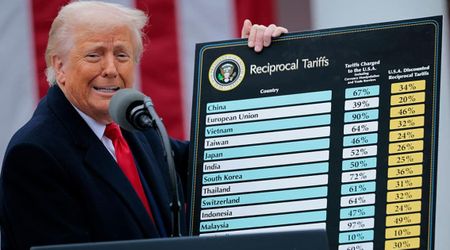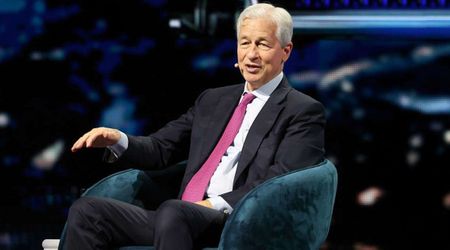California's $20 Fast-Food Minimum Wage Is Official; Workers Happy, But Owners Wary

The minimum wage for fast-food employees in California has been raised from $16 to $20 per hour. Effective as of Monday, the new law covers all restaurant chains with more than 60 nationwide locations. Signed by California Governor Gavin Newsom last September, following extensive advocacy efforts by workers within the state's fast-food sector, the legislation aims to enhance wages and working conditions. The law also establishes a fast-food council authorized to annually adjust wages until 2029, either matching inflation rates or increasing by 3.5%, whichever is lesser.
Worker Advocacy and Legislative Response
The legislation stemmed from advocacy efforts by California's fast-food workers and labor unions, who organized many strikes and demonstrations advocating for improved wages and working conditions within the fast-food industry.
As reported by the Associated Press, proponents of the law contend that a significant portion of the 500,000-plus fast-food workers are not teenagers seeking supplemental income, but adults striving to support their families. Many of these workers are women, immigrants, and individuals from marginalized communities, often residing below the poverty threshold.
"The $20 raise is a welcome development. I only wish it had happened sooner. Had it been implemented earlier, I wouldn't have had to seek out additional employment opportunities in various locations," expressed one immigrant fast-food worker.
BREAKING: Today hundreds of fast food workers from across California are in LA to officially launch the California Fast Food Workers Union
— California Fast Food Workers Union (@CAFastFoodUnion) February 9, 2024
We've won a Fast Food Council
We've won $20/hr
Now we're doing whatever it takes to win annual raises, just cause, and more#UnionsForAll pic.twitter.com/pykRKZF0PV
According to the U.S. Census Bureau of Labor Statistics, fast food workers in California made about $34,530 per year in 2022. However, a study found that this wage falls below the state's poverty line.
Despite earning less, the average wage for fast food workers in California was approximately $3 higher than the national average of $13.53/hour for such workers, given the state's minimum wage of $16 per hour—one of the highest in the United States, The Hill reported.

Although the law garnered support from the trade association representing fast-food franchise owners, many individual franchise owners have voiced concerns about its repercussions, especially within California's decelerating economy.
Drawbacks of the Legislation
The wage raise has ignited a contentious discussion regarding its potential effects on fast food prices within the state and its ramifications for smaller franchise restaurant proprietors. According to NPR, many fast-food executives have suggested a price surge of approximately 2.5% to 3.5% to counterbalance the wage escalation.
Moreover, franchises such as Jack in the Box, McDonald's, Starbucks, and Chipotle have all cautioned about imminent price rises, adding to the increases that several restaurants have already implemented due to high inflation. Despite a slowdown in inflation, the cost of dining out has remained elevated nationwide.
Starting April 1, the minimum wage for fast food workers in California will go up to $20—but chains are warning of a hike in menu prices. https://t.co/6AaZ38nFix
— Newsweek (@Newsweek) March 26, 2024
Besides the price hikes, numerous restaurants and fast food chains have revealed intentions to enhance automation as a means to reduce expenses. This includes the implementation of kiosks and robots in various operations.
For instance, Pizza Hut in California made headlines by announcing layoffs of over 1,000 delivery drivers in anticipation of the wage hike. The renowned pizza chain has instead opted for delivery through mobile apps such as Uber Eats and DoorDash, shifting the burden of delivery fees onto the customers.






















